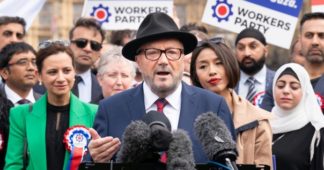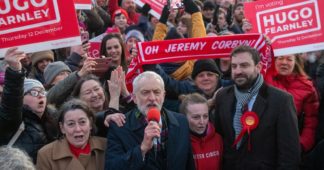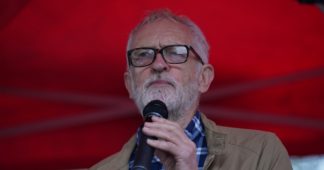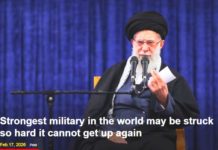By Aleem Maqbool
Jul 6, 2024
However big the headline change in the vote between the past two elections, drill down into two demographic pockets of Britain and you find staggering shifts.
It all centres around the relationships between the Labour Party and not just Muslim voters, but Jewish voters too.
It leaves a party in government that has made progress in winning back trust among people from one faith group while suddenly finding itself with a lot of work to do to win back many members of the other.
The drop in the Labour vote share among British Muslims between 2019 and 2024 very obviously played out in several constituencies. This happened most dramatically in Leicester South, with a Muslim population close to 30%, where Shadow Paymaster General Jon Ashworth lost his seat to independent Shockat Adam.
In the seat of Dewsbury and Batley, in Birmingham Perry Barr and in Blackburn, there were wins for independents in what had been safe Labour seats with large numbers of Muslim voters.
In places like Bradford West and the seat of Bethnal Green and Stepney in east London, sitting Labour MPs clung on with startling reductions in their majorities.
Mish Rahman, from Walsall, is not just any Muslim voter. He currently sits on the National Executive Committee (NEC) of the Labour Party, a body of fewer than 40 members.
He is furious with the party’s response to the killing of tens of thousands of people in Gaza and the humanitarian crisis there.
“In my community it has got to the point where I am now embarrassed about my affiliation with Labour,” he says.
“It was hard even to tell members of my own extended family to go and knock on doors to tell people to vote for a party that originally gave Israel carte blanche in its response to the horrific 7 October attacks,” says Mr Rahman.
He lays the blame for the decline in Muslim voting for Labour squarely at the door of the Labour leader.
Sir Keir Starmer was criticised by many in his party, including councillors, for an interview with LBC in October in which he suggested that Israel “had the right” to withhold power and water in Gaza. His spokesman subsequently suggested the Labour leader had only meant to say Israel had a general right to self-defence.
Then when Labour MPs were told by the party leadership in November to abstain from voting on an SNP-led motion calling for an immediate ceasefire in Gaza, some Labour councillors resigned and, for many Muslims, trust in their Labour MP was lost.
Faith communities are far from homogenous, of course. There are myriad factors that govern how a person will cast their vote, but faith does throw up a unique set of considerations that plays out in broad voting patterns.
Muslims are estimated to form around 6.5% of the population of England and Wales, with around 2% in Scotland and 1% in Northern Ireland.
Well over 80% of Muslims are believed to have voted for Labour in 2019. Research just ahead of the 2024 election suggested that had dropped nationally by up to 20 percentage points, and in some constituencies the Muslim vote for Labour clearly fell further.
The contrast with Jewish voting data could not be more stark. In 2019, the proportion of British Jews (about 0.5% of the population) who voted for a Labour Party led by Jeremy Corbyn is thought to have collapsed to just single figures. Research suggests that figure could have climbed back to above 40%.
“What we have seen is a huge bounce-back for Labour among Jewish voters,” says Adam Langleben, who was until recently the national secretary of the Jewish Labour Movement.
Mr Langleben, a former Labour councillor and now director of Progressive Britain (formerly Progress), points to Labour wins in London in the Finchley and Golders Green seat and also Hendon as well as Bury South in Greater Manchester, all constituencies with large Jewish populations.
“Jewish voters returning to the party has undoubtedly delivered seats to the Labour Party,” says Mr Langleben.
“You don’t need a majority of Jewish voters to win in these constituencies, but you also can’t only have 7% of them voting for you and expect to win,” he says.
Mr Langleben had been a senior member of the Jewish Labour Movement but was one of many Jewish members of the party to give up their membership during the Corbyn era. When he left in 2019, he said it was on account of the party being “led by antisemites”, an accusation always strongly denied by those leading the party at the time.
“It was a situation that was all-consuming. I would be canvassing for the Labour Party in a Jewish area and had people in tears on the doorstep saying there was no way they could vote for Jeremy Corbyn, and I was trying to juggle this huge personal tension,” he says.
Continue reading at www.bbc.com
Read also
After Corbyn, UK Labour elects Keir Starmer, Zionist with Jewish wife, as leader
We remind our readers that publication of articles on our site does not mean that we agree with what is written. Our policy is to publish anything which we consider of interest, so as to assist our readers in forming their opinions. Sometimes we even publish articles with which we totally disagree, since we believe it is important for our readers to be informed on as wide a spectrum of views as possible.











